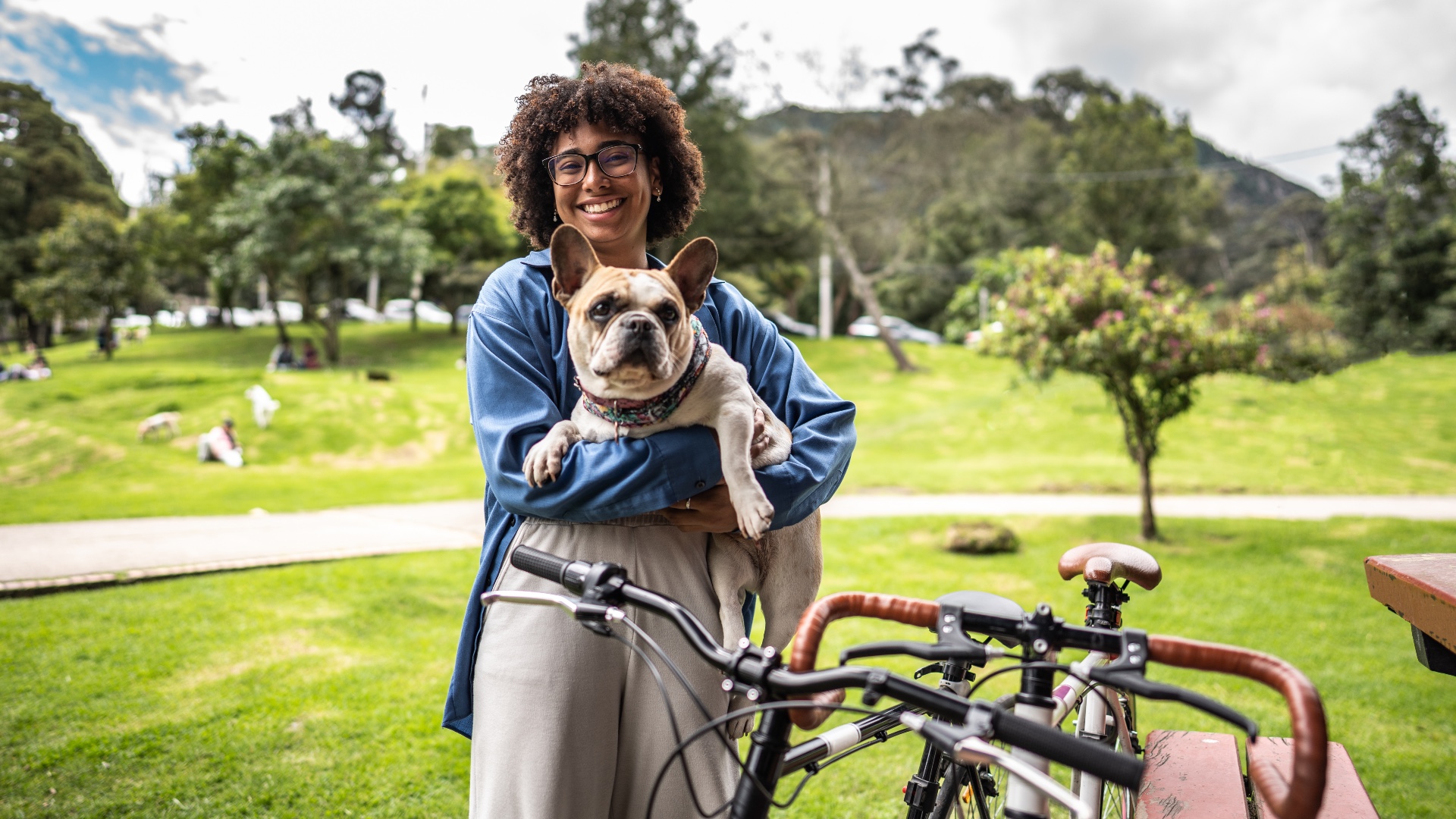Five trainer-approved ways to support your anxious dog
Help your dog feel more relaxed with this trainer's five simple tips to soothe their fear

Get the best advice, tips and top tech for your beloved Pets
You are now subscribed
Your newsletter sign-up was successful
Do you have a dog that often feels fearful or worried? If so, you're likely spending a lot of time searching for tips on how to calm a reactive dog.
Recognizing when your dog is feeling afraid is really valuable, but it's also important that you understand what you can do to help them feel less fear in their day-to-day life.
That's where expert trainer Lyz Knight comes in. An accredited trainer, and fear free certified professional, Knight has a wealth of experience working with reactive dogs.
In a helpful post shared to Instagram, Knight shares her top five tips on how you can support your anxious dog — and number two is particularly important.
Check out the post in full below, or read on for a summary of everything Knight had to say...
A post shared by Lyz - Rover Rehab (@roverrehabdogtraining)
A photo posted by on
1. Comfort your dog: "Comfort and reassure them when they are distressed," advises Knight. "Comforting your dog will not reinforce their fear — it can actually help them feel less worried. So offer comfort to your dog when they're feeling afraid."
2. Reduce the intensity: "Get distance from whatever is causing your dog stress. Encourage them to move into a different room, find a quiet street to hang out on for a moment, or tuck yourself behind a car or tree to reduce the intensity of visual stressors."
Get the best advice, tips and top tech for your beloved Pets
3. Management is your friend: "Use management to prevent access or reduce exposure to the stressful thing," explains Knight. "Leashes, baby gates or fences, window film, and white noise are all helpful management elements that can be beneficial for nervous dogs."
4. Work with a pro: "Enlist the help of a qualified positive reinforcement trainer. A trainer can help you pinpoint what might be causing your dog distress and come up with a customized plan to help them feel more comfortable."
5. Chat with your vet: Knight says that if all else fails, it's worth speaking with your vet. "For dogs who are experiencing consistent stress, or who aren't able to avoid stressful situations, medication can make a big difference in helping them cope."
Anxiety in dogs is more common than you think and can cause stress to both your pet and you.
For extra support, we recommend reaching out to a qualified behaviorist, who will be able to work with you and your dog 1:1.

Kathryn is a freelance writer who has been a member of the PetsRadar family since it launched in 2020. Highly experienced in her field, she's driven by a desire to provide pet parents with accurate, timely, and informative content that enables them to provide their fur friends with everything they need to thrive.
Kathryn works closely with vets and trainers to ensure all articles offer the most up-to-date information across a range of pet-related fields, from insights into health and behavior issues to tips on products and training.
When she’s not busy crafting the perfect sentence for her features, buying guides and news pieces, she can be found hanging out with her family (which includes one super sassy cat and a kitten), drinking copious amounts of Jasmine tea and reading all the books.
She has written for a range of publications, including Fit&Well, Top Ten Reviews, LiveScience, Goodto, and Product Hunt.
